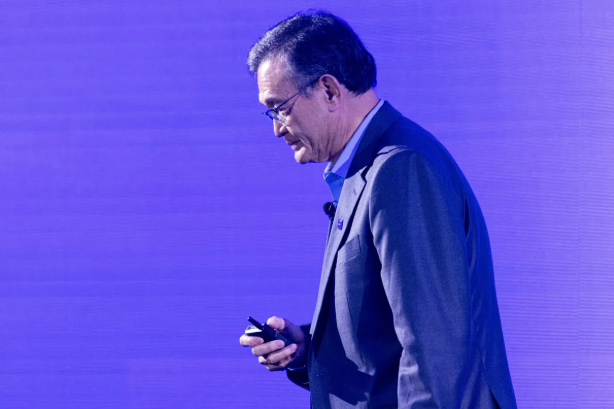According to informed sources, Intel has approached Apple, hoping to invest in the troubled chipmaker. This move aims to boost the company, which is currently partially owned by the US government.
Insiders said that Apple and Intel also discussed how to cooperate more closely. As the discussion was conducted privately, insiders declined to be named. Insiders said that the negotiations are still in their early stages and an agreement may not be reached.

Prior to this, Nvidia Corp. announced last week that it would invest 5 billion US dollars in Intel, planning to collaborate with Intel to develop chips for personal computers and data centers. SoftBank Group Corp., a Japanese tech giant seeking to further expand its market in the United States, announced a $2 billion investment in Intel last month.
Insiders said that Intel has also been in contact with other companies regarding possible investments and cooperation.
Apple has been a long-term customer of Intel and has been shifting towards developing its own processors over the past five years. Reaching an agreement with Apple will further validate the chipmaker’s transformation plan. However, it is unlikely that Apple will resume using Intel processors in its devices. The most advanced chips of this iPhone manufacturer are currently produced by its partner, Taiwan Semiconductor Manufacturing Corporation.
A representative of Intel declined to comment. An Apple spokesperson did not respond to a request for comment.
Intel CEO Chen Liwu is attempting to stage a comeback with the support of the federal government. In August this year, under the mediation of the Trump administration, the US government reached an extraordinary deal, acquiring approximately 10% of the shares of this chipmaker. Intel is regarded as a key measure to revitalize domestic production – and this is precisely the top priority of the White House.
Even with financial support, the challenges Intel faces remain formidable. The company, headquartered in Santa Clara, California, has lost its long-standing technological edge and ceded market share to competitors such as AMD. Furthermore, Intel finds it difficult to take advantage of the booming development of artificial intelligence devices (NVIDIA’s forte).
Intel was once the dominant player in the chip industry, but nowadays its sales and market value are far behind those of NVIDIA. To cope with its deteriorating financial situation, Intel has also carried out layoffs and postponed its factory expansion plans.
Despite this, since the government injected capital, investors have become increasingly optimistic about its prospects. The stock has risen by more than 60% since the beginning of August.
Under the leadership of former CEO Pat Gelsinger, Intel is committed to transforming into a chip foundry that produces semiconductors for external customers. However, the company has always struggled to acquire enough customers to support its factory expansion plans.
Under Chen Zhiyong’s leadership, Intel continues to implement its foundry strategy, although with greater caution. In July this year, he stated that Intel would only introduce a brand-new cutting-edge production technology called 14A with the consent of its customers.
Apple and Intel have a long history of cooperation, and sometimes it can even be a bit tense. For many years, Apple has been using Intel chips in its Mac computers, but since 2020, it has gradually abandoned the use of Intel chips – this is part of Apple’s broader efforts to use more internal components. Apple also acquired most of Intel’s modem chip business in 2019.
Nowadays, Apple is trying to show that it is making significant investments in the United States – although most of its production is still overseas. At the White House event in August this year, the company announced plans to invest 600 billion US dollars in domestic projects over four years, which is higher than the previously committed 500 billion US dollars. The core of this expansion is a $2.5 billion investment in Corning Inc., a long-term glass supplier for Apple.
Apple CEO Tim Cook told CNBC’s Jim Cramer that these investments will encourage other companies to increase production in the United States, thus creating a “domino effect”.
When asked about Intel, Cook said that competition is beneficial to the chip foundry industry. “We are very glad to see Intel return.” “


